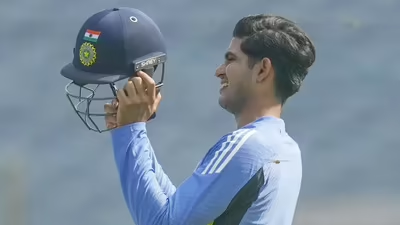With Rohit Sharma and Virat Kohli recently retiring from Test cricket, former England captain Michael Vaughan has hailed Shubman Gill as India’s future batting anchor and potential long‑term leader. His comments reflect growing international confidence in Gill’s talent and composure at just 25.
Former England captain Michael Vaughan has made a strong public endorsement of Shubman Gill following the retirements of Indian stalwarts Rohit Sharma and Virat Kohli from Test cricket. Vaughan stated, “Don’t be surprised if Gill emerges as one of the world’s leading batsmen,” citing his talent, composure, and early leadership experience.

Image source:-timesofindia.indiatimes
Gill Steps Into the Spotlight
At just 25, Gill has been appointed Test captain for India’s upcoming tour of England—a bold decision by the BCCI in light of the sudden exits of Rohit and Kohli. Gill’s leadership record includes leading the Gujarat Titans to the IPL playoffs, which played a key role in his selection over senior player Jasprit Bumrah. Now, Vaughans’ prediction adds a further layer of validation to Gill’s rapid rise.
Support from Cricket Greats
Gill also received endorsements from other former captains and legends:
-
Ricky Ponting called the move “smart and timely,” advising India to set Gill at his ideal batting position to support his leadership journey.
-
Anil Kumble acknowledged the distinct pressures of national leadership compared to franchise cricket, affirming confidence in Gill’s preparedness.
Upcoming England Tour – A Testing Ground
Gill’s captaincy debut comes during a challenging five‑Test series in England, starting June 20. Veteran players and commentators caution that English conditions are notoriously tough for Indian batsmen. Vaughan, however, embraced the challenge, remarking that a strong performance could “mark the start of something special” for India’s new generation.
Gill’s Own Perspective
In his pre‑tour press briefing, Gill described himself as “overwhelmed” by the responsibility but confident in leading by example—both through communication and consistent performance. He emphasized the importance of mental clarity and maintaining a supportive locker-room culture where players feel secure.














